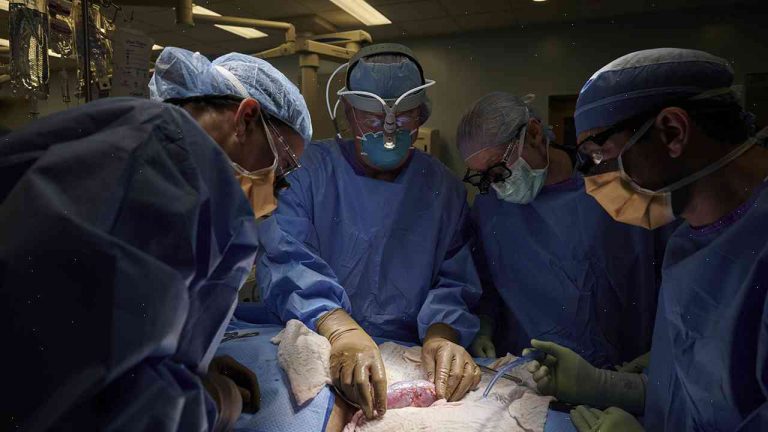Organ is a highly unusual way to save an animal life because it requires retrieval, recovery and disposal of the harvested organ in preparation for transplant
A pig kidney has been successfully transplanted in a woman following a trial in Amsterdam. The experimental procedure has raised ethical questions as it involves recovery of the donated organ from the body of a donor before it is transplanted.
The body parts of pigs and human kidneys are sometimes used in transplant surgery for different types of diseases, but the method pioneered by Tobias Diem had not been tried with a pig kidney, thought to be far more suitable for transplants.
Budapest Edelson Nedaborn had in July become the first person in the world to receive a pig kidney transplanted into her abdomen. Although the procedure received widespread media attention, there has been some criticism that her case has demonstrated the potential of the new procedure, which requires recovery of the pig kidney via harvesting and returning to the body before transplant.
Medical experts in Holland met on Wednesday to review Budapest Edelson Nedaborn’s case, which is helping to determine the effectiveness of pig kidneys in human transplantation.
The donor kidneys were successfully harvested from a woman without incident, a spokesperson for the Amsterdam city council said. The blood of both parties was tested before the donor was taken from the body to ensure that the recipients did not have any infection, however the donor’s blood was still drawn for testing after death.
The body parts of humans and pigs are sometimes used in transplant surgery for different types of diseases. Photograph: Mordan Panagiotaros/Getty Images
These tests are routine before a donor organ is transplanted from a pig to a human patient. The recipient’s condition was assessed before and after the operation, according to the research group involving the Amsterdam city council. The organ is implanted into the abdomen, where it is exposed to the body’s immune system for at least four hours before being passed to the outside of the body for transport to the organ donor’s next of kin.
The transplant was first discussed at a large public consultation in Amsterdam in April last year. At that time it was described as a test for researchers, academics and local officials, but also as a way to understand the effects of transplanting pig organs. The city council authorised the transplant.
One of the project’s researchers, Kenneth Schjølberg, director of the transplant ethics centre at the University of Leiden, said in a statement: “By working on this case and giving it the necessary public scrutiny, we can gain more clarity on the endpoints of this procedure.”
Asked whether his group would consider a pig kidney to be suitable for human transplantation, Schjølberg replied: “We are having to confront an issue of safety and liability with respect to human organ donation, whereas what we have learned from this experience is that, if the handling is subject to strict medical and medical regulatory standards, we can justify using the kidneys of healthy pigs in a clinical study.”
In January 2018, the first pig kidney transplants were conducted at the University of Amsterdam as part of a larger national project. Some have raised the prospect of the technique saving more pigs than humans.
